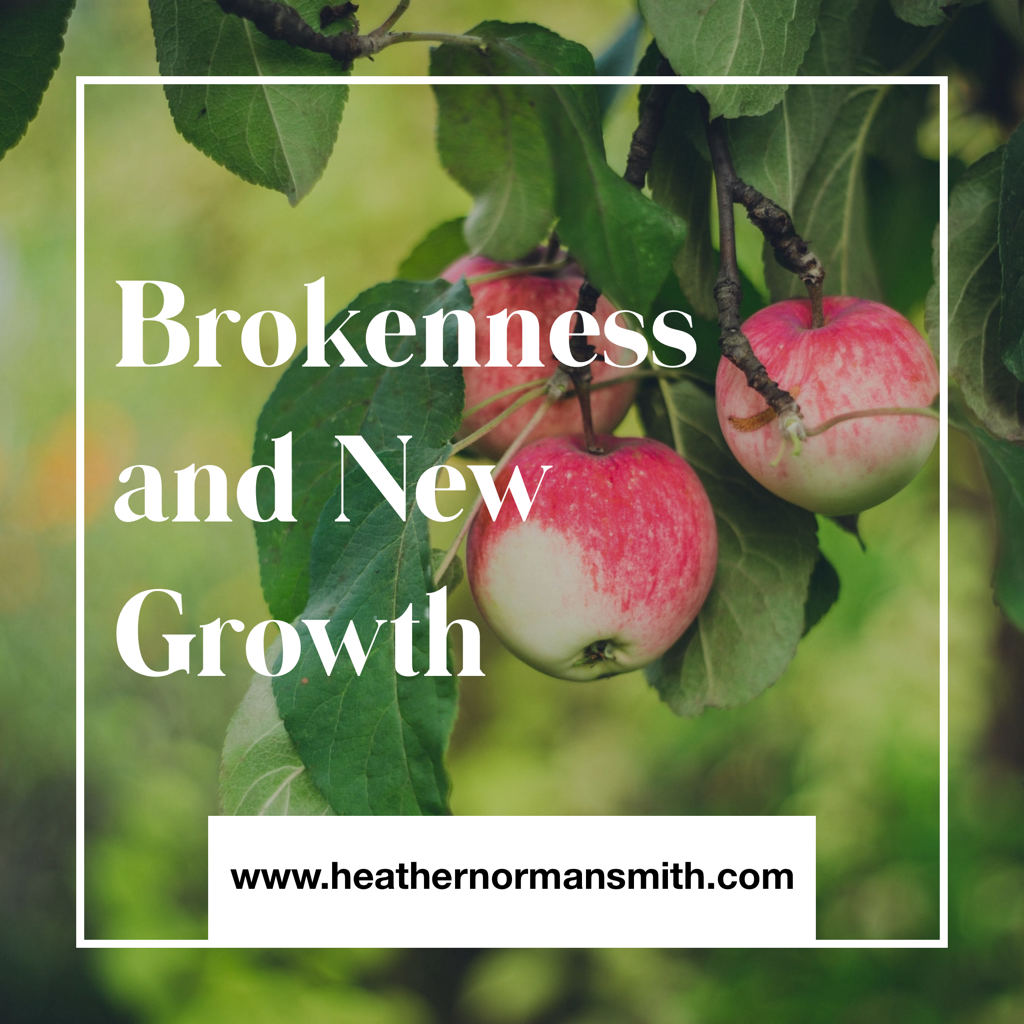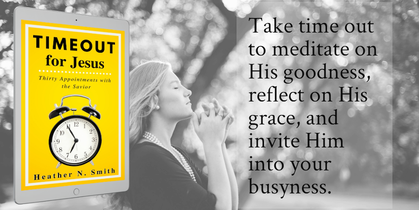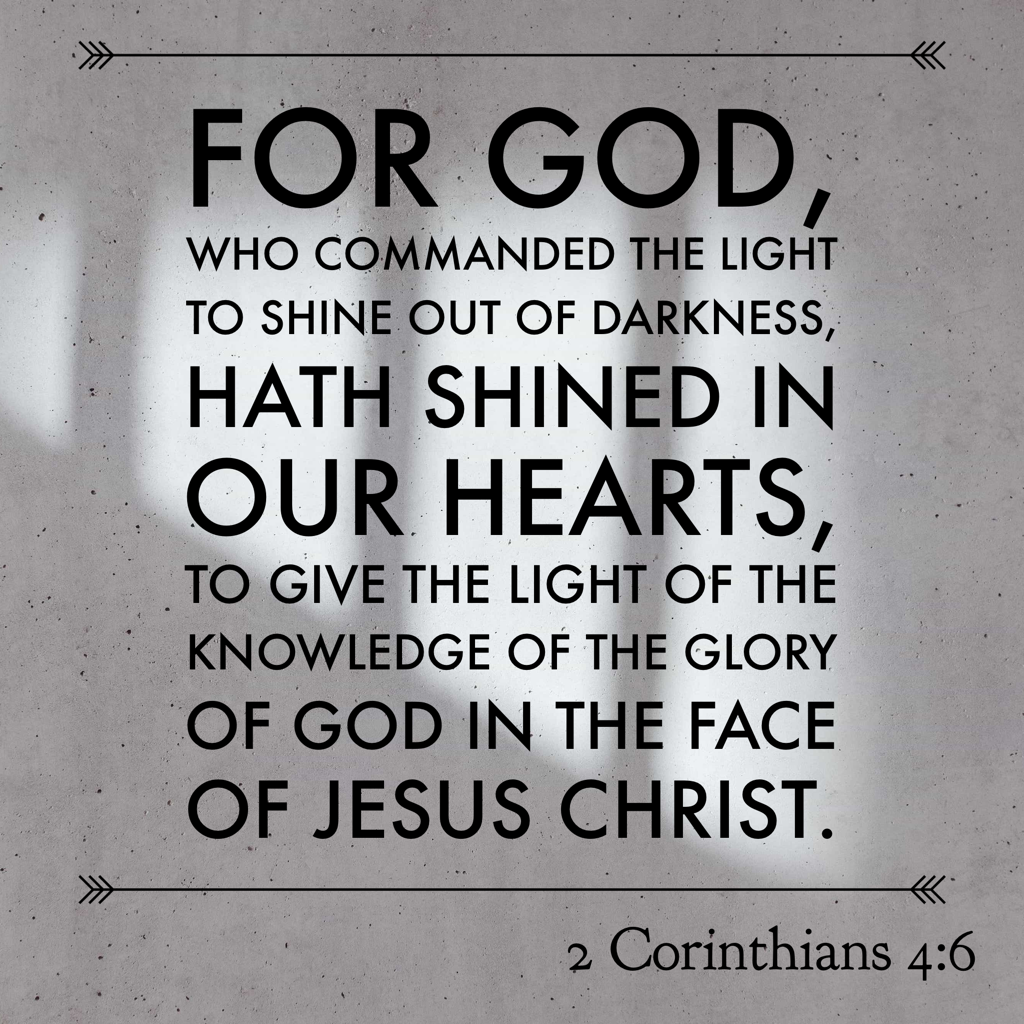|
A couple months ago, my son took the seeds from an apple he’d just finished, and, without my knowing, he stuck them in the dirt in a flowerpot in our kitchen. Soon, to my surprise, three little trees sprouted up amongst the flowers, and after a few weeks, I transferred them to a large container outside. The internet tell me that the seedlings have the potential to mature into fruit-bearing trees in about eight years, but interestingly, their product may not be the same variety as the apple from which the seeds were taken, because apple trees do not produce “true-to-seed.” That information led me to research grafting. In order to grow a specific variety of apple, horticulturists graft a branch (called the scion) from a tree of that variety, onto a cut branch of another planted apple tree (called the rootstock.) The previously separate trees merge together, and growth continues. How amazing! And it’s a beautiful picture of how God made us part of His family, allowing us, as Gentiles, to be joined to the rootstock of Abraham. (Read in Romans, chapter 11 about how we have been “grafted.”) But as I studied the grafting process, another spiritual application struck me. You see, before grafting can be accomplished, a tree must be violently injured. The sharp teeth of the saw grind back and forth through the wood until the branch is cut in two and the dismembered portion of the host tree falls to the ground. The woody flesh at the cut point is suddenly exposed. The tree appears irreparably damaged. Then the tree is further damaged as the gardener takes the grafting knife and cuts deep into the broken part. Maybe you feel like that tree. You’ve been hurt, cut off. A painful, dramatic change has occurred in your life, and you are a fraction of your former self. Things seem hopeless. But please remember that, like for the tree, growth is still possible. It’s not the end. Those places that are wounded can be restored with a new calling, a new relationship, a new perspective; and you will be fruitful, maybe even in a way that is superior to what the original “branch” could have produced. Just as many individuals are going through a kind of painful grafting process, I believe the church, and even our nation, are going through it as well. And while we may have to wait to see the results, we can trust God to bring healing to the broken parts. He will create something beautiful in time. “Behold, I will do a new thing; now it shall spring forth; shall ye not know it? I will even make a way in the wilderness, and rivers in the desert.” Isaiah 43:19
0 Comments
I get into my car on a ninety-degree day. The air is stifling. Beads of perspiration form on my forehead in seconds. The steering wheel scorches my hands. As I back down the driveway, it feels as if I’m being roasted alive. There’s no way I can survive those conditions for long. The heat is unbearable. Yet, I don't stop the car and jump out. I don't even roll down the window. Why? Because the first thing I did after I started the car, was turn on the air conditioner. I know it will cool me down soon enough. It only takes a moment to kick in. The discomfort is temporary, fleeting. It can't hurt me. Relief is coming. We’re living in troubled times. Many people are distressed and scared, and my heart breaks for those who are struggling to find peace right now. But if we stop to think about it, there’s nothing truly exceptional about this moment in history. There has always been trouble, since man’s fall. War, plagues, famine—it’s all part of the human experience. Yet God, in his mercy, grants healing and restoration over and over, in a beautiful cycle of compassionate sovereignty. We hurt, then there’s a reprieve. The fighting ends. The plagues leave. The food returns. History proves that our present trials, however big or small, are temporary. And even more so, our faith proves it. Faith tells me that God IS working things out for GOOD, even now. Whether I see the result or not, God’s plans for His children are good, and He has not abandoned us. And faith tells me, too, that we’ll have perfect peace in heaven with Him one day. Pain doesn't last forever. Whether in this life or the next, relief is coming. That’s how we endure trials--with faith that they are temporary. The Bible says, “Weeping may endure for a night, but joy comes in the morning.” (Psalm 30:5b) Hang on. Relief is coming. A woman when she is in travail hath sorrow, because her hour is come: but as soon as she is delivered of the child, she remembereth no more the anguish, for joy that a man is born into the world. John 16:21 For I reckon that the sufferings of this present time are not worthy to be compared with the glory which shall be revealed in us. Romans 8:18  The bright late-May sunshine fell on my face, luxuriously warm. I closed my eyes and let my skin soak up it's energy as the corners of my mouth automatically drew upward in delight. It's rays reinvigorated my weary soul. But it was only for a second. The sun kissed me for a literal second, then it was gone. Back again. Gone again. Back again. Gone again. Over and over. The swing on the back deck of my house was in just the right spot for me to experience the sunshine on the way up, but the backswing put me in the shadow of the house. I wanted to enjoy the sun, but I was tired, and the obvious solution didn't seem worth the energy- MOVE THE SWING! It's light-weight and slides easily, but I didn't do it. How often does this happen in my spiritual life? I go back and forth between experiencing THE LIGHT and slipping into the shadows. I love the benefits of spending time with God but I don't always make the effort. To be clear, as a child of God, He's always with me. But, because of MY actions, I'm not always basking in the fullness of relationship with him. And the solution for that is as simple as moving the swing. I need to move myself to do the things that I KNOW promote fellowship with God- spending more time in prayer and reading the Word. We should aim not to only experience His presence at church or when we need something from Him. It should be where we live! Psalm 140:13 says: "Surely the righteous shall give thanks unto thy name: the upright shall dwell in thy presence." What are you waiting for? Take a step out of the shadows today. Let's move to where the Light is. Far back from the road stood a group of trees much different than all the rest along the drive. To make room for the power line that ran alongside them, the branches on one side—from the top to the bottom—had been lobbed off. These beautiful, tall pines were literally half of what they once were.
While disfigured, the trees appeared strong. They stood straight and tall. They towered over the land, despite their lopsided condition. And even if half was missing, there was no mistaking what they were. They were still trees. There are people in my life with a similar misshapenness. Though the wounds aren't physical, their eyes tell the story of the day the limb-cutter came to maim. Maybe you’re one of them. Somewhere along the way, something happened to change who you are. You have trauma that will forever shape you. You’re marked by it. It’s a defining characteristic in your life. Time is tracked as before or after the event that altered everything. But in the midst of heartache, like the trees, you’re still standing. Though circumstances transformed your life in a way you never wanted, you’re still standing. Life may never look the same again, but you’re still standing. And you are still YOU. A parent that loses a child—even with that important part missing—is still a parent. Someone whose innocence is stripped away like the limbs of the tree, doesn’t lose their humanity with it. You’re still you, and you still have room to grow around the scars. Jeremiah 17:7-8 says, “Blessed is the man that trusteth in the LORD, and whose hope the LORD is. For he shall be as a tree planted by the waters, and that spreadeth out her roots by the river, and shall not see when heat cometh, but her leaf shall be green; and shall not be careful in the year of drought, neither shall cease from yielding fruit.” Whenever you feel hopeless, when the pain of loss outweighs everything else, trust in the Lord. You are still you, and, if you are a believer, you are still His. May you find comfort in your identity as a child of God, and in your ability to stand. "Behold, what manner of love the Father hath bestowed upon us, that we should be called the sons of God." (1 John 3:1a) Imagine for a moment, a simple work of Christian fiction. The writing has some weak points, but the characters are likeable, the story is inspiring, and the truth of the Gospel is presented clearly. Most readers tell the author they like it, but she wonders how many are just being nice. Now, let’s imagine that little book in the right hands.
One of the first people to purchase the book is a faithful church-goer and friend of the author, named Mary. She loves the book because the gospel is woven seamlessly into the story. Mary has an unsaved friend named Nancy who loves to read. Mary thinks Nancy might enjoy the book, and that maybe, the Holy Spirit will use it to nudge her in the right direction. Unfortunately, the story really isn’t Nancy’s cup of tea. She puts the book aside after reading only one chapter. Months pass and the book collects dust. One day, Nancy’s teenage daughter, Jane, notices it on the shelf. It has a pretty cover, so she tries it out. The characters draw her in, and she can’t put it down. Even though the story has some “church stuff”, she likes it. A week later, Jane’s friend, Lily, invites the girl to church for the first time, and she agrees to go so she can hang out with her friend afterward. At church, the preacher’s sermon is confusing for Jane, until she remembers something from the Christian book she enjoyed so much. She makes a connection, and she understands that God loves her. That day, she chooses to give her life to Him. Jane shares her decision with Lily and her mother, Kate, and they rejoice with her. Jane tells them about the book, and Kate decides to read it. The theme of foster care and adoption in the story immediately strikes a chord. She’d been praying about fostering a child, and the Lord uses the book to confirm her calling. Kate and her husband eventually adopt a seven-year-old boy named Noah. He spends the rest of his childhood in a loving, Christian home, and he makes a profession of faith at the age of fifteen. The Lord calls him right after high school to become an evangelist. At a revival meeting several years into Noah’s ministry, he helps lead an older woman to the Lord. Her name is Nancy. She tells Noah that she had rejected God for many years, and that she wishes her good friend Mary were still alive to see her prayers for Nancy be answered. See what a simple book can accomplish in the right hands? Now, please don’t be confused. The “right hands” weren’t those of Mary, the friend of the author. The right hands were God’s. My made-up tale may seem fanciful, but when we place our work in the hands of the ultimate Creator, we can only imagine the story He will write! If you want to impact the kingdom with your talents, seek Him first, then put forth your very best effort in all that you do and trust God to use it mightily! You may never know the story. You may never be aware of the reach and impact your writing has. But you can always trust God’s purpose for it to be accomplished. Commit thy way unto the LORD; trust also in him; and he shall bring it to pass. Psalm 37:5 Trying my first vlog! (And it only took about five takes. *winks*) I'm sharing some thoughts for fellow creatives, and I hope you will be encouraged. Is the remix ever as good as the original? What about new words set to the same music? One of my favorite things about Christmas is the music reserved for Yuletide—the familiar melodies we play and sing for a few weeks each year before we pack them away with the lights and porcelain nativity to be brought out and enjoyed again the next. Some are sacred and some are just for fun, while others aren’t really about Christmas at all. (Jingle Bells? Sleigh Ride? Walking in a Winter Wonderland?) The ever-popular Carol of the Bells falls somewhere in between. The majesty of its symphonic arrangement points to the Divine and the joyful lyrics hint at the Real Reason for the season, but it stays clear of the category of church music. Such a beautiful song...but do you know about the “other” version? Originally a Ukranian carol about the New Year, Carol of the Bells (the English Version) was copywritten in 1936. A variant called Ring, Christmas Bells, written by Minna Louise Hohman, was copywritten in 1947, and its main message isn’t about bells, but about Jesus. (Here’s a popular rendition, recorded in 1962 by the Ray Conniff Singers.) I never realized there was another version until this year. Imagine my excitement when I was listening to what I thought was Carol of the Bells and heard the line “Jesus is King!” on a secular radio station!
Comparing the versions, we find that both are beautiful and jubilant. The wonderful music is the same. They both speak of bells. But only one gives credit where credit is due. Only one proclaims the truth of the Christmas season. And we see the same concept in the lives of people and in the culture around us. Many will celebrate Christmas as a happy holiday, a joyful time of year to be with loved ones. But only some will acknowledge Him. Only some will actually celebrate the life-altering truth of "Unto you is born this day a Saviour!" It goes beyond Christmas. It’s the difference between someone asking you to send “good vibes” and asking you to petition Heaven on their behalf. It's the difference between being a "positive person" and having the joy of Lord. So, I ask- what version does the world see when they look at you? Do you proclaim that Jesus is the source of Joy in your life, or do you assume it’s somehow implied? Let's make Him known this Christmas. We can still enjoy Carol of the Bells. It certainly has its place. But take time to sing the other version, too. Sing out "Jesus is King!" with your life and celebrate the gift of His coming, at Christmas and all year long. There's a helpful book about writing novels that discusses widely-accepting industry rules, the author's opinions and experience with these rules, and how to get past the industry gatekeepers when it comes to deviating from them. The gatekeepers that Jeff Gerke describes in his book are the acquisition editors who have the power to decide if a writer will be represented by an agency or publisher. They keep unwanted things out.
The term "gatekeeper" resonated in my spirit. While there are plenty of things that should be kept out of the church, we need a different kind of gatekeeper. We need watchmen at the doors, not of the physical building, but of the body of Christ, for two specific reasons. 1.) To hold the door open to invite people in. I know some of these gatekeepers. They bring new people to church often. They say, "Hey! Come inside! Jesus is for you, too! He wants you here!" We need gatekeepers to make sure people feel welcomed within the church and to hold the doors open for all who would seek to enter with a desire to encounter God. I imagine this kind of gatekeeper swinging back and forth on the gates, calling to those in the street, "It's open! It's open! It's open!" 2. To make it harder for people to slip away. This is where the term really struck me. Too many people, especially young people, slip out of the church's gates unnoticed. We don't realize they're gone until it's too late. They have no desire to come back. And I worry it's simply because nobody tried to stop them from leaving. There was no one guarding the gate, saying, "We'll miss you if you're gone. There's nothing out there for you. You're safer in here. Please stay." Obviously, we have free will. If someone is determined to leave the safety of the church, they are ultimately accountable to God for their choice. But what if we had more gatekeepers to guard the doors of the fold? With kids, it should be the parents that guard the gate. But if that doesn't happen, who will be standing there to keep our young people from going astray? While a pastor guards the flock, laypeople can be gatekeepers, too. Reach out to your church's young people. Keep them involved so they understand they have a place. Don't let them slip out unnoticed. Oh, Lord, make us gatekeepers. Teach us how to swing the doors open to everyone that may pass by, and help us stand guard for the ones that need encouragement to stay within the gates. From the start of age five, until adulthood, children get a special holiday each year that grown-ups don't observe: The first day of a new school year!
New Year's Day is a fresh start for everyone, and we all have birthdays to mark the first day of a new age, but the first day of school is a third day on the calendar when kids can enjoy the excitement of a new start. As grown-ups, we may remember the feeling, and live it alongside our children, but we no longer fully experience it. As I prepare to send my baby to kindergarten on Monday, my middle daughter to third grade, and my oldest to a brand new adventure in middle school, I see their excitement. "Firsts" fuel excitement for life! For us old, married, parents, there are no more "first dates". There will never be another "first kiss". Most of our firsts are lived vicariously through our children. But experiencing new things can still fuel excitement for life! If you feel like your life is dull and boring, a little lackluster, think about a new experience you can try, something you can do for the "first" time, to create that "first day of school" feeling. Here are just a few suggestions:
The more outside your comfort zone, the better, to build a feeling of excitement that might add a spark to life! You're never too old for a new experience or a new challenge. Grown-ups need more "firsts". What will your next one be? |
About the BlogThank you for visiting my blog. I share devotional articles and musings about life, parenting, and the writing journey, as well as important news about my books. I hope you find something of interest here! Click below to sign up for my email newsletter, which includes links to my latest blog posts. Thank you!
Categories
All
Archives
August 2023
|













 RSS Feed
RSS Feed